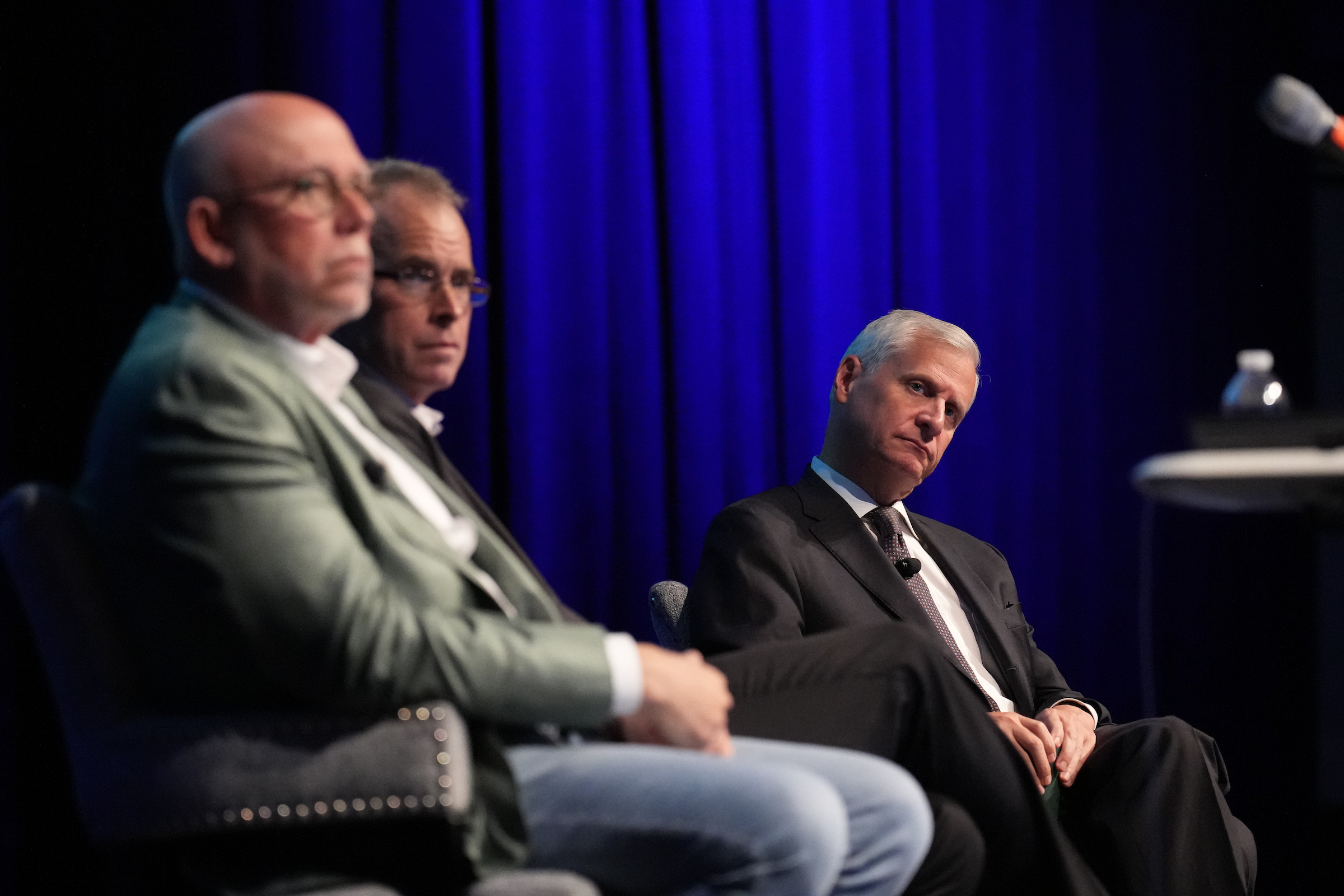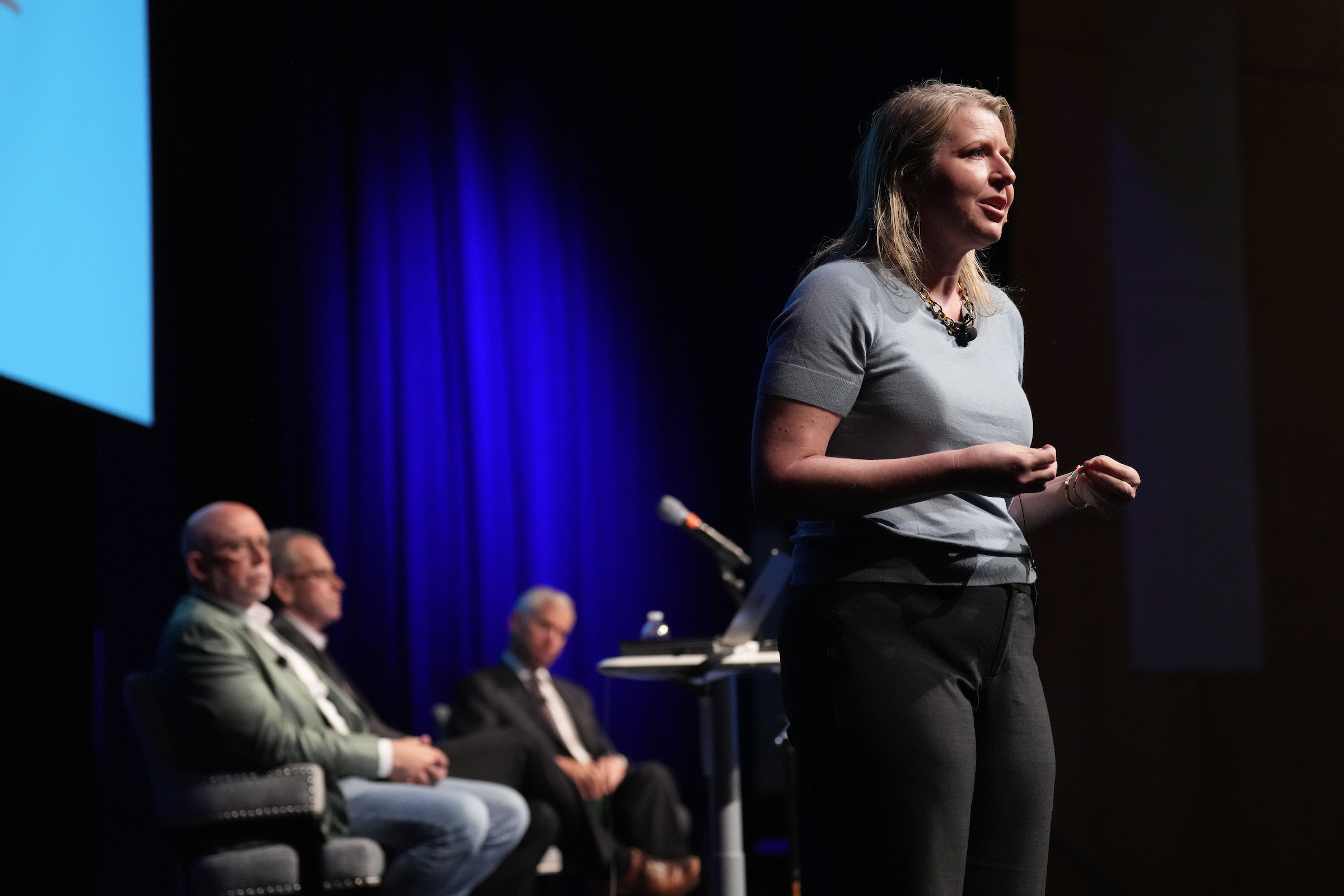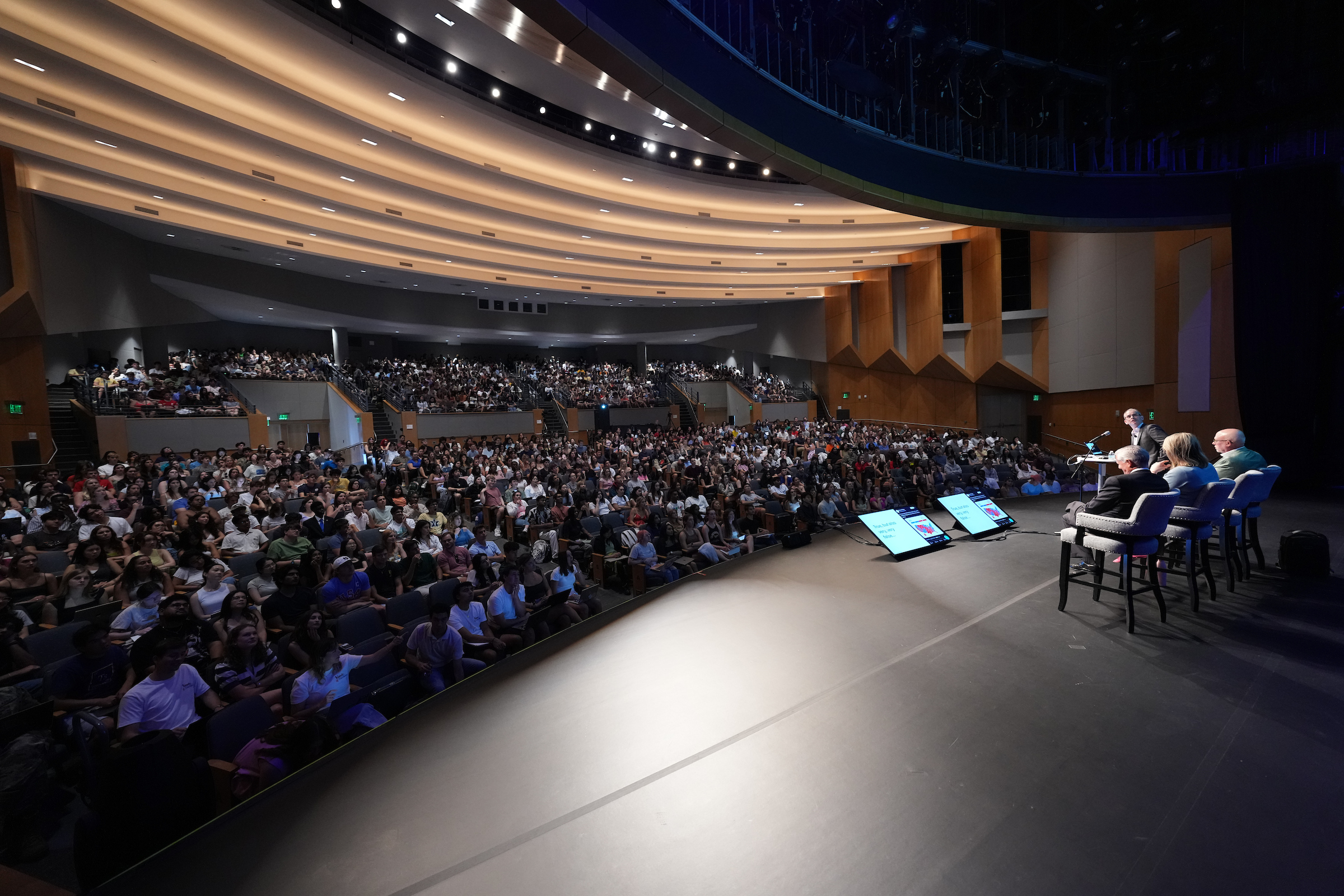With 1,100 enrolled students, the number speaks for itself—PSCI 1150: U.S. Elections is a hot commodity on campus. The elective course offered every four years by the College of Arts and Science is a highly anticipated deep dive into how elections work in the U.S., blending a robust understanding of history with extensive research from political science.
John Geer—the Gertrude Conaway Vanderbilt Professor of Political Science, co-director of the Vanderbilt Poll, and leader of the Vanderbilt Project on Unity and American Democracy—had the idea for the class in 1996 with now-retired Professor Bruce Oppenheimer. Although the roster of professors has shifted since those initial Clinton vs. Dole days, the popularity of the class hasn’t waned. Originally held in Wilson Hall, the course started with 200 enrollees in the 1990s. Today it’s held in Langford Auditorium for a four-hour block on Tuesday and Thursday afternoons. The auditorium has a 1,104-seat capacity.

“The elections course has always sought to be a special experience for students, being offered once every four years as we blend the actual campaign with the deep scholarship on the topic,” Geer said. “The 2024 class has taken things to a new level with the historic size, the unprecedented nature of the 2024 campaign, noteworthy speakers and a group of talented students helping the class.”
This year, the class is co-taught by Geer and a trio of political science professors:
- Josh Clinton, Abby and Jon Winkelried Professor of Political Science, co-director of the Vanderbilt Poll, and senior election analyst for NBC News
- Nicole Hemmer, associate professor of history and director of the Rogers Center for the American Presidency
- Jon Meacham, Carolyn T. and Robert M. Rogers Professor of Political Science and Pulitzer Prize–winning presidential biographer
“We want to make sure that the class is apolitical in the sense that it is not taking a side,” Clinton said. “Our goal is to help our students become better able to understand the context and significance of what they are observing in the current election given all that we know from history and political science about the nature of politics and elections.”

According to the course description, the class covers past elections (e.g., 1800, 1860, 1992), the nomination process and campaigning. Geer also lined up prominent guest speakers to shed light on pressing topics and offer a sense of the United States’ contemporary, and often divisive, politics. These special guests include:
- Ariel Edwards-Levy, editor of polling and elections analytics at CNN
- Charlane Oliver, Tennessee state senator for District 19
- John Lapinski, Robert A. Fox Professor of Political Science at the University of Pennsylvania
- George Stephanopoulos, television host, political commentator and former White House communications director under Bill Clinton
- Chris Krebs, former director of the U.S. Cybersecurity and Infrastructure Security Agency
Students have also taken an active role by sharing what they’ve learned from the class with the public, creating a dedicated VU Elections 2024 blog and Instagram account.
After the November elections, the class will turn their attention to assessing what happened and the implications for governing beginning in January 2025.
